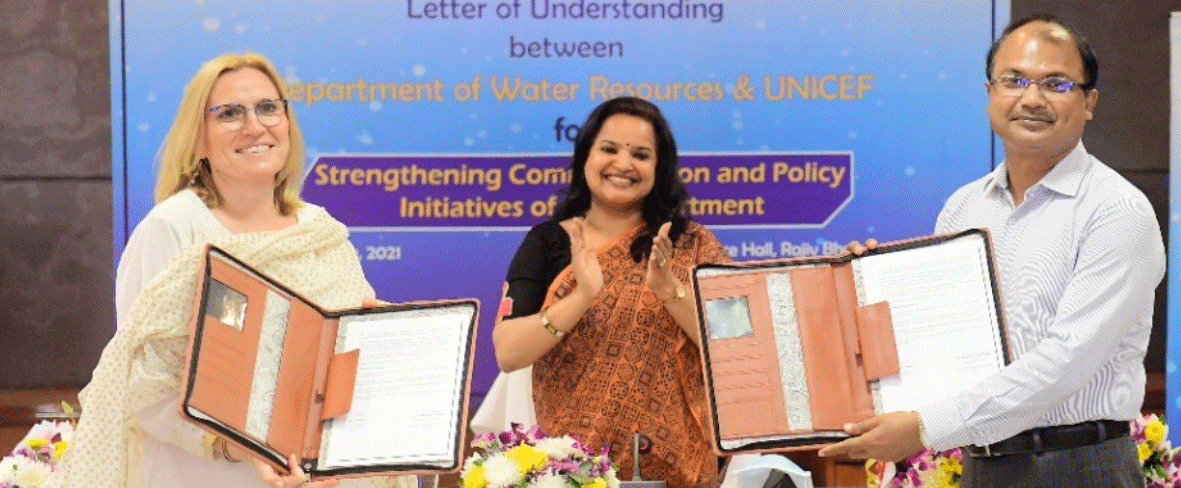Bhubaneswar: As an important 5T initiative, the Department of Water Resources(DoWR) and UNICEF Wednesday signed a Letter of Understanding (LoU) with UNICEF to collaborate on communication and policy initiatives of the Department of Water Resources.
This endeavor aims at engaging with the community on sustainable water management, prudent water use, equity in water distribution, water conservation, women as principal stakeholders in water governance, participatory irrigation management etc.
Speaking on the occasion, Principal Secretary Water Resources Anu Garg said that the DoWR, for the first time since inception, is unleashing its soft power through greater community engagement in matters of water governance, water conservation and keeping water clean.
She explained that, climate change has forced all to rethink the way water is managed and that it is the responsibility of all the stakeholders to work towards realizing key Sustainable Development Goals(SDGs) such as access to safe and affordable drinking water; sanitation and hygiene; improved water quality; wastewater treatment and safe reuse; increased water-use efficiency; Integrated Water Resource Management (IWRM); protecting and restoring water-related ecosystems; capacity-building and participation in water and sanitation management etc.
She also launched a Web Site “Youth4Water” for the purpose.
She maintained that rethinking State Water Policy, development of Water &Land Management Institute (WALMI) as a Centre of Excellence (CoE);‘Youth4Water’and ‘Mo Nadi’ campaigns are the key features of the collaboration with UNICEF going forward.
UNICEF Chief Field Office Monika Nielsen who signed the LOU maintained that, large-scale urbanization, shifting cultivation patterns, and an increase in industry have forced us to think more strategically about water and communication and work to achieve the SDG.
While challenges continue to evolve in different sectors, more and more emphasis is given on communication to address few of such challenges. UNICEF is committed to bringing positive changes to the lives of women and children and these changes cannot be achieved without addressing the water-related issues, she said.
Through this partnership UNICEF is committed to develop high impact communication materials and water policy that will help ensure change in the behavior of children and women on sustainable water use and conservation.


